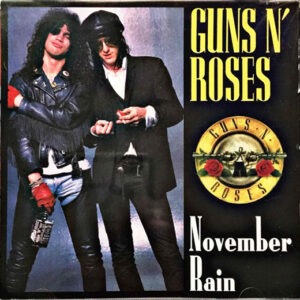So, another Fed meeting has arrived, and yet again the FOMC is expected to hike the Funds rate by 75 bps. While it’s more than likely that they will, it’s in my opinion a fair chance that they will only go by 50. If they do, there’s obviously a decent likelihood of the stock market extending recent gains, and when that little run-up has run its course, you will get a fantastic opportunity to sell even better levels than now. I strongly suggest you make sure to take full advantage of it.

Those of you who have previously read my comments know full well by now that I’ve not exactly been enamoured by Federal Reserve’s reactive, rather than proactive, stance and strongly felt they should have started hiking in spring ‘21 when it was clear inflation was going to become a problem going forward. It might therefore surprise you that I now think there’s a good case for only hiking by 50 bps. The reason is spelled Money Supply, something considered as unfashionable as CD’s or double-breasted suits by the vast majority of market participants, and it is absolutely collapsing in the US (and to a lesser extent elsewhere). This is a harbinger of some seriously bad news for assets in general, and low quality, non-cashflow generating assets in particular. That’s why if they had started the cycle much earlier, they would now actually be entertaining the possibility of easing policy in the run-up to Christmas. The money supply numbers suggest they should. That would have been the advantage of conducting monetary policy in a proactive, rather than reactive fashion.
This obviously raises the inevitable question of why we need central banks when they seem to create more harm than good. That question, just like rising default risks of government bonds, will no doubt be the topic of a future note…
The reason why Fed will continue hiking rates when they really should be on hold, and quite possibly be looking at some near-term pain relief is fairly obvious. When your current policy setting is best described as being really far up the proverbial Creek – without a paddle, or sense of direction I might add, you really have no option but to press on, because if you want to look like Paul Volcker you have to act like Paul Volcker. Eventually, however, you do come to a point where your behaviour is approaching the boundaries of sanity, and you really would be better off by taking stock of your current situation and start acting accordingly rather than chasing ghosts of central bankers past. I believe the Federal Reserve is very close to that point. Until then, expect the FOMC to keep behaving like the duck swimming next to them on their journey up the Creek. Cool, calm and collected above the water line, while paddling like crazy (which, I readily admit, is pretty hard without a paddle) under the surface, trying to find the shore as quickly as possible.

Given their late start to tightening monetary conditions, it’s fairly obvious that rates should be higher than they are today, and their balance sheet smaller – much smaller, but it’s not. By doing only a token 50 bps tonight, they will appear to remove the more immediate risk of being accused of not taking notice of what’s happening around them in the real world. That’s smart. Compounding that risk by ignoring the torpedoes and running full steam ahead is not. Doing 75 bps tonight according to the pre-announced Bernankian manual a la ‘06 will not stop us from talking about Arthur Burns at Thanksgiving dinner.
Whether the FOMC pulls the trigger on 75 or my preferred move of 50 is in some sense irrelevant, because people will look for signs of a pivot and try to move into stocks (and quite possibly bonds) irrespective of whether it’s an attempt to “buy the dip” or “the break-out”. Doing so will not be a great trade, simply because you make a lot more money selling rallies than buying dips in a bear market, and this very much remains a bear market. So while it’s more than likely that we will extend those hard-earned October gains a bit further, we are after all moving into some nice seasonals, they are not worth chasing – not for more than a day-trade, with very tight stops. Why ? Because this remains a full-blown, unapologetic bear market.
We are facing the strongest secular headwinds the market has been subject to for half a century, and the starting point valuation wise is much worse now than it was in 1973, so there is absolutely no reason to expect the decline in wealth to be more contained now than it was then. In fact, for those of you clinging to that hope, let me remind you that hope is not a viable investment strategy. The main reason for not being in a hurry to buy this time around remains the coming impact from Climate Change on the valuation of stocks, bonds, real estate, and everything in between. It’s also worth remembering that even if this was a world not about to become permanently impaired, there really wouldn’t be much of a hurry anyway. Why ? Because you don’t unwind decades of globalisation gains to corporate profits in just 9 months, and with basic valuations and profit margins at extreme levels that have just started to turn, you will be much better off picking easier fights to win.
For those of you with a bullish predisposition who prefer to look back at the 1994 tightening cycle, rather than the 1974-75 debacle, it is worth remembering that Fed started raising rates from about 0 in real terms, not when they were 6% in negative territory. That difference made Greenspan’s pivot almost 28 years ago at 6% a great buying point for bonds and stocks.
So, whether Powell & co moves 50 or 75 tonight ultimately doesn’t really matter – just keep your eyes on the ball, or the big prize if you prefer, and cautiously keep buying those very select companies that produce genuinely needed goods and services. Do so when the market tanks, and they participate in the downdraft. At all other times, keep pairing back risk by selling beta, particularly when Mr Market gives you those wonderful little pops. Exiting positions against the prevailing trend when the market allows you to is a simple, but very effective strategy. Having done so, I believe you will be handsomely rewarded and able to re-load bonds and stocks over the coming months/quarters at much better levels.
I’m sorry Jeremy, you will never become Paul Volcker, no matter how hard you try, and the ghost of Arthur Burns will not miraculously be exorcised by just sticking to your guns and delivering 75 tonight.



